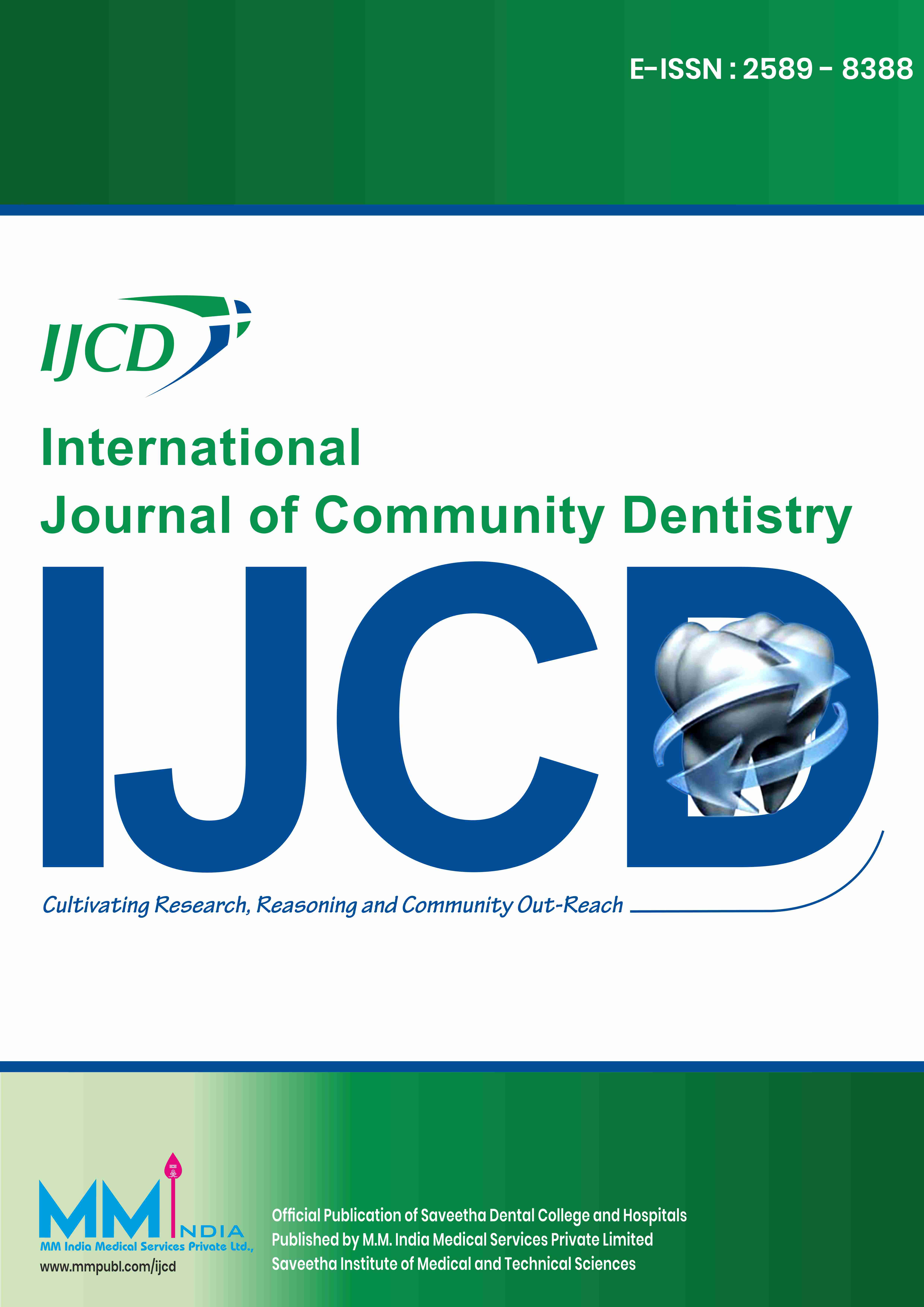NON-NUTRITIVE SWEETENERS AND ITS HEALTH IMPLICATIONS -A REVIEW
Review Article
DOI:
https://doi.org/10.56501/intjcommunitydent.v10i1.601Keywords:
Diabetes, metabolic disorder, non-nutritive sweeteners, obesityAbstract
Nonnutritive sweeteners (NNS) have been widely used in various therapeutic and dairy products and have become an inseparable part of our routine life. They deliver far less calories and intense sweetness than their sugar-containing counterparts. The United States Food and Drug Administration recognizes Aspartame, saccharine, sucralose, neotame, acesulfame-K, and stevia safe for consumption by diabetics. They also aid in weight loss. However, there is inconclusive evidence to support most of their uses. In addition, the lack of interventional studies has proven inadequate to evaluate their efficacy in different populations like pregnant, breastfeeding women. Furthermore, the susceptible population comprising of diabetics, epileptic patients are more likely to sustain the deteriorating effects of NNS-containing products. The current review signifies the benefits and the potential risks of using them based on dietary guidelines.
References
João Gregório M, Gregório MJ. Obesity as a Major Public Health Problem in Portugal: Achievements and Challenges [Internet]. Vol. 36, Portuguese Journal of Public Health. 2018. p. I – II. Available from: http://dx.doi.org/10.1159/000502305
World Health Organization. Diet, Nutrition, and the Prevention of Chronic Diseases: Report of a Joint WHO/FAO Expert Consultation. World Health Organization; 2003. 149 p. Accessed on 20.3.2022.
Lin J, Kao TW, Cheng YC, Fan KC, Huang YC, Liu CW. Dehydroepiandrosterone status and efficacy of dehydroepiandrosterone supplementation for bone health in anorexia nervosa: A systematic review and meta-analysis. Int J Eat Disord [Internet]. 2022 Apr 22; Available from: http://dx.doi.org/10.1002/eat.23714
Cefalu WT. Medical Management of Diabetes Mellitus. CRC Press; 2000. 768 p.
Mitchell H. Sweeteners and Sugar Alternatives in Food Technology. John Wiley & Sons; 2008. 432 p.
Blundell JE. Low-calorie sweeteners: more complicated than sweetness without calories [Internet]. Vol. 109, The American Journal of Clinical Nutrition. 2019. p. 1237–8. Available from: http://dx.doi.org/10.1093/ajcn/nqz015
Bartolotto C. Does Consuming Sugar and Artificial Sweeteners Change Taste Preferences? [Internet]. The Permanente Journal. 2015. Available from: http://dx.doi.org/10.7812/tpp/14-229
English Legal System. 2012. p. 378–378. Available from: http://dx.doi.org/10.4324/9781843143451-104
Duyff R. Academy of Nutrition and Dietetics Complete Food and Nutrition Guide, 5th Ed. HarperCollins; 2017. 816 p.
Cole AS, Eastoe JE. Biochemistry and Oral Biology. Butterworth-Heinemann; 2014. 570 p.
Rowe RC, Sheskey PJ, Quinn ME. Handbook of Pharmaceutical Excipients. Amer Pharmacists Assn; 2009. 888 p.
Solis-Medina A, Martínez-Magaña JJ, Quintanar-Jurado V, Gallegos-Silva I, Juárez-Rojop IE, Tovilla-Zárate CA, et al. Astrogliosis and decreased neural viability as consequences of early consumption of aspartame and acesulfame potassium in male Wistar rats. Metab Brain Dis. 2018 Dec;33(6):2031–8.
Jean-Michel Merillon, Kishan Gopal Ramawat. Sweeteners - Pharmacology, Biotechnology & Applications. Springer, pp. XVII, 657, 2018, 978-3-319-27027-2. ⟨hal-03248270⟩
O’Donnell K, Kearsley M. Sweeteners and Sugar Alternatives in Food Technology. John Wiley & Sons; 2012. 504 p.
Eric Walters D, Orthoefer FT. Sweeteners: Discovery, Molecular Design, and Chemoreception. Amer Chemical Society; 1991. 333 p.
Food and Agriculture Organization. Codex Alimentarius Commission: Procedural Manual. Food & Agriculture Org; 2011. 212 p.
de la Peña C. Empty Pleasures: The Story of Artificial Sweeteners from Saccharin to Splenda. Univ of North Carolina Press; 2010. 296 p.

Downloads
Published
How to Cite
Issue
Section
License
Copyright (c) 2022 Channesh Patel , Sathya Kumaresan

This work is licensed under a Creative Commons Attribution-NonCommercial 4.0 International License.



